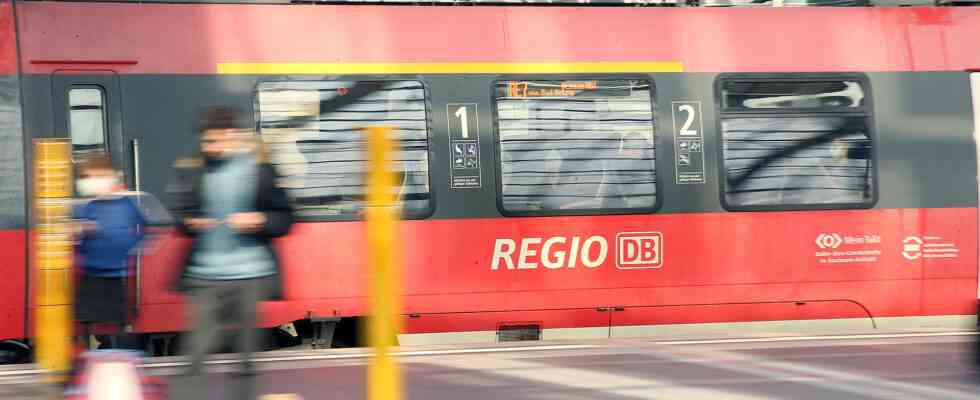Status: 04/27/2022 04:22 a.m
From June, citizens should be able to use the bus and train for three months for little money – the cabinet is discussing the planned nine-euro ticket today. But much is still unclear, especially the financing.
Unlimited travel by bus and train for only nine euros a month, in local and regional transport – and even across the many tariff associations and national borders: what has so far been a dream is to become reality in Germany this summer: with the nine -Euro ticket, a second summer fairy tale, so to speak, from the beginning of June to the end of August.
“I think that’s a great offer,” says Federal Transport Minister Volker Wissing from the FDP. However, if you ask in the federal states, the enthusiasm for the nine-euro ticket is rather limited.
The same applies to Bremen’s transport senator Maike Schaefer, currently chair of the transport ministers’ conference of the federal states: “We were all quite surprised that the nine-euro ticket was to come, decided overnight, so to speak, at federal level. It’s quite a challenge.”
Above all, a financial one: the transport companies will lose at least 2.5 billion euros in revenue from the nine-euro ticket – because the discount should not only apply to drivers who now want to change because of the high fuel prices, but also to regular customers who already have a bus and train travelcard. So if you previously paid 60 euros a month for your subscription, you will automatically get 51 euros back for each campaign month in the summer.
The federal government wants to take over the estimated costs of 2.5 billion euros – but that’s not enough for the states. In a letter they demanded a commitment that the federal government would add money if it became necessary – but so far the Federal Minister of Transport has not been willing to do so: “The federal states take nine euros per ticket, they don’t have to give them up, they can keep them, so that the full costs are reimbursed,” said Wissing on the TV station Welt.
The pandemic has left its mark on public transport
But the dispute between the federal and state governments is no longer just about the nine-euro ticket, but about the future of local public transport in Germany: the pandemic has caused passenger numbers to collapse, and there are massive increases in energy and staff costs.
That is why the federal states are demanding a further 1.5 billion euros from the federal government in addition to the corona rescue package that has already been agreed – otherwise transport companies may have to reduce their offer, their federal association has already warned. Or the ticket prices would be significantly increased in winter at the latest.
Public transport must be affordable
That would be counterproductive, says Bremen’s Transport Senator Schaefer: “We want to make public transport palatable to people, and that’s only possible if we keep the tariffs so that people continue to be able to afford them.”
The nationwide nine-euro ticket is supposed to be an appetizer: but if it is to be sold from June, the Bundestag and Bundesrat, including the federal states, must agree next month. Otherwise the new German summer fairy tale would be over before it even began.
Nine-euro ticket in the cabinet – countries are demanding more money
Jim-Bob Nickschas, ARD Berlin, April 27, 2022 at 4:22 a.m

